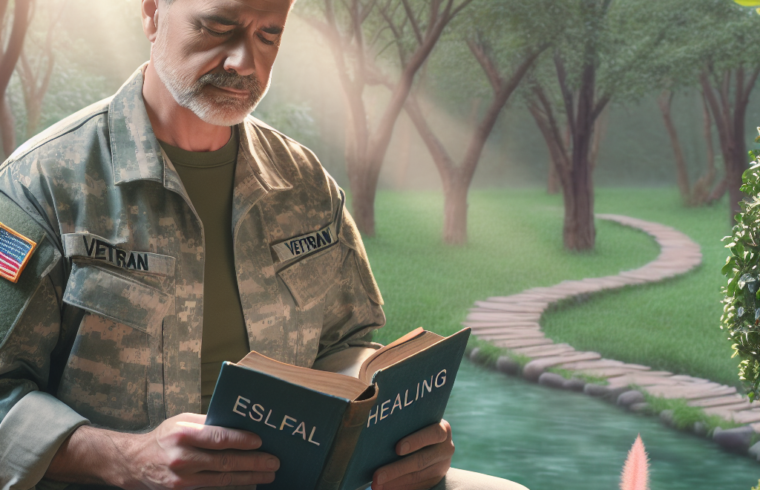==> Thank you for reading this post! Click Here If you are looking for support and Victory over PTSD.
Enhanced Coping Mechanisms
Understanding Coping Strategies
When I first started my journey into resilience training, I had no clue how vital coping mechanisms were. You see, coping strategies are our mental tools—how we deal with stress and anxiety. With the right training, I began to see things differently. Instead of being overwhelmed by memories, I learned to manage my thoughts proactively.
One powerful thing I discovered is that there are both positive and negative coping strategies. For example, while avoidance might seem like a quick fix, it’s really just kicking the can down the road. In contrast, techniques like deep breathing or mindfulness helped me reshape how I reacted to stressful situations.
The training didn’t just stop there; it offers a plethora of approaches to help process trauma. Gathering tools to navigate through the emotional storms has been empowering. Coping isn’t just about surviving; it’s about thriving.
Building Emotional Resilience
Let’s be real, building emotional resilience isn’t something you can do overnight. But through my training, I’ve learned that it’s all about building a sturdier emotional foundation. Emotional resilience allows us to bounce back from setbacks with a bit more grace and strength.
This is where the training shines, giving us exercises to enhance our emotional toolbox. Finding support in other veterans and sharing experiences has been tremendously helpful. It reassured me that I’m not alone—together, we lift each other up.
As the sessions continued, I started to notice subtle shifts in my emotional landscape. It was as if I had upgraded my mental software. I’m not saying I became immune to being upset, but I learned how to navigate those feelings in healthier ways.
Developing a Positive Mindset
Now, a positive mindset might sound cliché, but trust me, it’s a game-changer. The training emphasized the power of positive thinking. It’s wild how changing my perspective could change my entire outlook on life. Instead of fixating on what I couldn’t control, I started focusing on what I could—like setting daily goals, no matter how small.
Gratitude was another major aspect of this journey. Practicing gratitude helped me see the silver lining in tough situations. Each day, I began keeping a journal of things I was thankful for. It transformed my mindset from feeling like a victim to recognizing my strengths.
As I embraced this positive mindset, I noticed how much lighter I felt. It empowered me to tackle challenges rather than shrink away from them. The world didn’t seem so daunting anymore—it was more like an adventure calling my name.
Improved Relationships
Strengthening Bonds with Fellow Veterans
One of the most unexpected perks of resilience training was the strength of the bonds I developed with fellow veterans. Sharing stories of struggle and triumph created an unbreakable bond. We understood each other’s challenges, fears, and victories, which was incredibly validating.
Attending group sessions fostered a community of support. It’s funny how you can feel so isolated, yet in those sessions, I felt like I belonged. Nothing like knowing someone else gets what you’ve been through—it’s incredibly comforting!
These relationships didn’t just stay confined to the classroom. We’ve formed friendships that extend into our everyday lives. It’s like having a second family who genuinely understands the complexities of our experiences. That’s priceless in maintaining mental well-being.
Reconnecting with Loved Ones
Resilience training also opened the doors for reconnecting with my family. After combat, it felt challenging to communicate with loved ones. But through role-playing and sharing techniques, I found ways to express my feelings effectively.
The skills I learned about active listening transformed my interactions at home. Instead of waiting to respond, I learned to understand my loved ones’ emotions better, which led to deeper conversations and a more robust emotional connection.
Seeing my family engage with these changes has been heartwarming. It’s reassuring to know we are all navigating this journey together, with more compassion and understanding than before.
Rebuilding Trust
Another surprising benefit was learning how to rebuild trust—not just in others, but in myself. After experiencing trauma, trust often becomes a fragile thread. In resilience training, we explored techniques to enhance our self-trust, which ultimately improved our relationships.
Techniques such as affirmations and self-compassion exercises helped me lower my guard. It feels liberating to trust my instincts again, and I can say my interactions with others have flourished since then.
Being able to trust others again has been a slow but steady process, yet I’ve witnessed tangible improvements in my relationships. The comfort that comes from trusting both ourselves and others cannot be underestimated in our healing journeys.
Enhanced Problem-Solving Skills
Embracing Challenges
The nature of military life is full of challenges, and that experience can prepare us for future obstacles. However, the resilience training taught me how to embrace those challenges with a different approach. Instead of avoiding problems, I learned to face them head-on.
This shift in mindset—instead of avoidance, it’s all about being proactive—has been invigorating! I often find myself looking for solutions instead of fixating on the problem, which has led to personal growth I never thought possible.
Breaking down complex problems into manageable parts has been a game-changer. It’s like turning a overwhelming mountain into a series of achievable hilltops. Each small victory adds up, giving me more confidence in my problem-solving abilities.
Creative Solutions to Everyday Issues
Funny how resilience training can spark creativity, right? Learning to think outside the box has helped me approach daily challenges with a fresh perspective. Whether it’s finding new ways to handle interpersonal conflicts or managing my time better, being inventive has become second nature.
I’ve realized that creative problem solving is not limited to just grand dilemmas; it applies to everyday life! From reorganizing my daily routine to finding alternative methods for managing stress, it’s deeply satisfying to tackle problems from angles I once overlooked.
As I embraced this creative approach, it felt like the world expanded before me, filled with possibilities and options. I’m excited to see where this newfound mindset takes me and how it allows me to tackle challenges as they come.
Setting Realistic Goals
Setting realistic goals is vital—yet so often overlooked. The training emphasized the importance of setting achievable goals as part of the problem-solving process. I had this habit of setting the bar way too high, leading to feelings of failure. Learning to scale down my expectations was liberating!
Get Support and Help with Recovery! Visit us for more Information and Support
By breaking bigger objectives into bite-sized pieces, I’ve been able to celebrate more victories. I stop to appreciate each triumph, no matter how small. This method fosters a sense of accomplishment and keeps me motivated.
Now, instead of feeling overwhelmed, planning my objectives feels empowering. I find myself understanding how to navigate each step effectively. It’s less about the destination and more about enjoying the journey.
Increased Self-Awareness
Understanding My Triggers
One of the biggest eye-openers for me during resilience training was recognizing my triggers. I had been living on autopilot for so long, responding to situations without fully comprehending why. Training helped me identify what sets off my anxiety and why those triggers exist.
With this newfound understanding, I could take proactive measures rather than reactive ones. For instance, if stress from crowds used to panic me, I could plan outings differently or employ grounding techniques beforehand.
This identification process was like peeling layers of an onion; it took some time, but it was worth every tear! Increasing my awareness helps immensely in navigating daily life with intention.
Reflecting on Personal Values
Being part of resilience training also guided me to reflect on my personal values. It’s incredible how understanding what truly matters to me can shift priorities and stressors in everyday life. I embarked on a journey of introspection to discover what I stand for.
Through meditation and journaling, I began to clarify my values, giving me a compass to navigate decisions. When faced with choices, I ask myself, “Does this align with my values?” This filter has made a world of difference in how I respond to life.
Learning to stick to my values has fortified my resolve. Suddenly, I have a clearer vision of who I am and what I want. My confidence has significantly grown because I feel authentically aligned with my beliefs.
Growing Empathy
Let’s chat about empathy—it’s so crucial yet easily brushed aside. Resilience training taught me that being aware of myself opens the door for compassion towards others. As I learned about my experiences, I couldn’t help but relate to the struggles of those around me.
What blew my mind was how empathy connects us on deeper levels. It allows me to understand perspectives beyond my own and cultivate compassion. I’ve forged closer relationships because I can relate to the struggles of those I interact with.
This empathy journey brings a sense of belonging and connection—hallmarks of resilience. It’s comforting to know I’m not alone and that we can support each other through this wild ride called life.
Better Overall Health
Managing Stress Effectively
Resilience training significantly impacted my health, primarily by tackling stress. Stress management techniques became a focal point of our sessions. I learned practical approaches to control my anxiety levels, like using breathing techniques or engaging in physical activity.
By managing stress effectively, I noticed a positive ripple effect across all aspects of life. When I’m calm and centered, everything feels less chaotic. It’s amazing how my mood and overall health improved, all thanks to these techniques.
A key takeaway was learning when to take a break. I often felt pressured to power through difficult times without a breather, but it’s made a profound difference to allow myself moments of rest. Self-care isn’t just important; it’s crucial for sustained health.
Physical Activity as Therapy
Physical activity is underrated for mental health, and resilience training reinforced that idea. Incorporating exercise into my routine became a way to channel emotions healthily. Whether running, walking, or yoga, these practices have greatly improved my mood.
Getting moving helps release feel-good chemicals, and it’s fascinating how a simple workout can change my perspective. It became a sanctuary where I could clear my head and focus my thoughts, which carries over to my everyday challenges.
Physical activity also fosters a sense of accomplishment. Each workout feels like a little victory, reminding me of my strength. The synergy of body and mind is palpable as I prioritize both aspects of my health; it’s all interconnected!
Improving Sleep Quality
If you’ve ever dealt with PTSD, you know sleep can be a real struggle. Resilience training brought awareness to how my stress levels directly affected my sleep quality. Through mindfulness practices, I learned how to quiet my mind, allowing for more restful nights.
Sleep hygiene became another essential topic. Creating calming bedtime routines helped signal my body that it was time to wind down. Not scrolling through my phone before bed made an incredible difference—I began waking up feeling more refreshed and ready to take on the day.
Prioritizing sleep taught me how intertwined our health is. Better sleep has become a protective factor against stress; it’s rejuvenating! I can’t emphasize enough how significant proper rest is for both mental and physical health.
FAQ
1. What is PTSD resilience training?
PTSD resilience training is a structured program designed to help individuals, particularly veterans, develop coping mechanisms, enhance emotional resilience, and improve problem-solving skills in dealing with trauma and stress.
2. How does resilience training improve relationships?
Resilience training fosters connections among individuals who share similar experiences. It enhances communication, builds empathy, and helps to restore trust within relationships, making it easier to connect with friends and family.
3. Can resilience training help with stress management?
Absolutely! Resilience training provides practical techniques for managing stress, such as mindfulness, physical activity, and effective coping strategies that lead to a healthier overall lifestyle.
4. What are some techniques learned in resilience training?
Some common techniques include mindfulness practices, cognitive restructuring, emotional awareness exercises, and physical activity. These tools help participants handle challenges more effectively.
5. Is resilience training only for veterans?
While resilience training is highly beneficial for veterans, it can also be adapted for various groups and individuals experiencing trauma, anxiety, or stress. Anyone looking to enhance their mental resilience can benefit from it!













